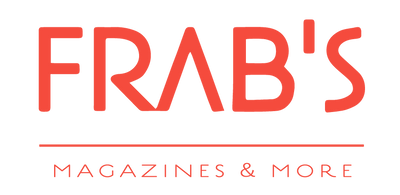Work better and live smarter: Courier magazine tells you how
Perhaps it would have been more appropriate to entrust a review of Courier magazine to Dario. For him, economics and business plans are daily bread while I literally hated the microeconomics exam at university and I feel anxious every time I have to deal with invoices and numbers. Yet Courier, despite being a magazine dedicated to the economic and business world, has become one of my favorite readings in the last two years. The reason is simple and you can already guess from its motto, Work better, live smarter, be happier, but only by delving into its pages is it possible to understand the reason for the success of a magazine that needs no introduction.
Dozens of case studies, tips, tricks, stories from creatives and small business owners who have managed to transform their insights into the work they love by challenging conventional (and ultra-capitalist) ideas on how to grow a business, are the foundation of the cocktail. perfect that constitutes the magazine.
Courier was born in 2013 from an idea of Jaff Taylor and Soheb Panja precisely to give voice to a new generation of "entrepreneurs", people that the two founders saw spent Sunday mornings in London cafes, discussing business and models of business, but they would never read the Financial Times or The Economist. What Taylor and Panja realize, perhaps before all the others, is the change between old and new generation in the relationship between work and lifestyle: if the old generations measure success in terms of luxury and money, the new ones they measure it in terms of personal satisfaction, happiness and freedom in being able to do what you love on your own terms and at your own pace.
In short, the old adage that if you love your job, you will not work even a day of your life, seems to marry well the philosophy of the magazine and the very story of the magazine (and its founder) becomes an interesting case study.
Taylor, in fact, quits his job to found what was initially a 32-page free press distributed by bicycle through the streets of Shoreditch. That the advice found in his magazine is excellent can be understood from the fact that Courier is now paid and is distributed in 26 countries around the world with about 80,000 readers.
"Courier is not really about business, it's about people" - says Jeff in a podcast - "and the amount of creativity and ingenuity shown in each issue is enough to make anyone anxious (to do) in a regular job stamped with the tag ".

And that's exactly how it is. Reading Courier gives an energy that is difficult to describe in words because it is what is furthest from words: it is the desire to get involved immediately and it does not matter if it is about opening an ice cream shop, launching a start-up, starting a gym, entering in the business of (legal) hemp or founding a record label, Courier is for everyone and speaks to everyone, not only (and perhaps not at all) to large entrepreneurs or experts in economics and finance.
Each issue of the magazine is thematic, but it doesn't matter what the focus of your "secret dream" is, because each of the stories contained in the magazine is stimulating and has something to teach. Successes, failures (which are perhaps the ones you learn the most from), bizarre ideas and trendy ideas, innovators, all and everything brilliantly find a place in this magazine with a fresh cut and clear ideas.
In addition to the magazine, every year the editorial staff of Courier publishes un special book, the latter two are a guide on how to start and build a business with lots of practical exercises to do, and a collection of "100 Ways to Earn a Living".
The new issue is certainly one of those I loved the most because it is entirely dedicated to one of the sectors in which it is notoriously more difficult to do business: that of culture and creativity.
Thus, among the pages of this edition, there is space for the trends that are establishing themselves, such as that of digital influencers, sustainable fashion or the hype of business models based on streetwear. Alongside there are life stories (the couple who moved from California to Vienna to open a concept store is indicative of how you can really do everything in life) and explanations on how to monetize your creativity on social and offline. The "workshop" section is very useful with advice on how to build a pricing strategy and a product portfolio, how to select your team, what must include the contract that a creative freelance should always have his clients sign before starting a job, how to choose the right bank and, again, the step-by-step guide to the financial aspects of your business, with those indications and advice that we all wanted to have when we started our business.
Courier is, in short, the most practical magazine of inspiration and economics that I know, one of the few able to offer concrete help to those who are transforming their idea into something great.

